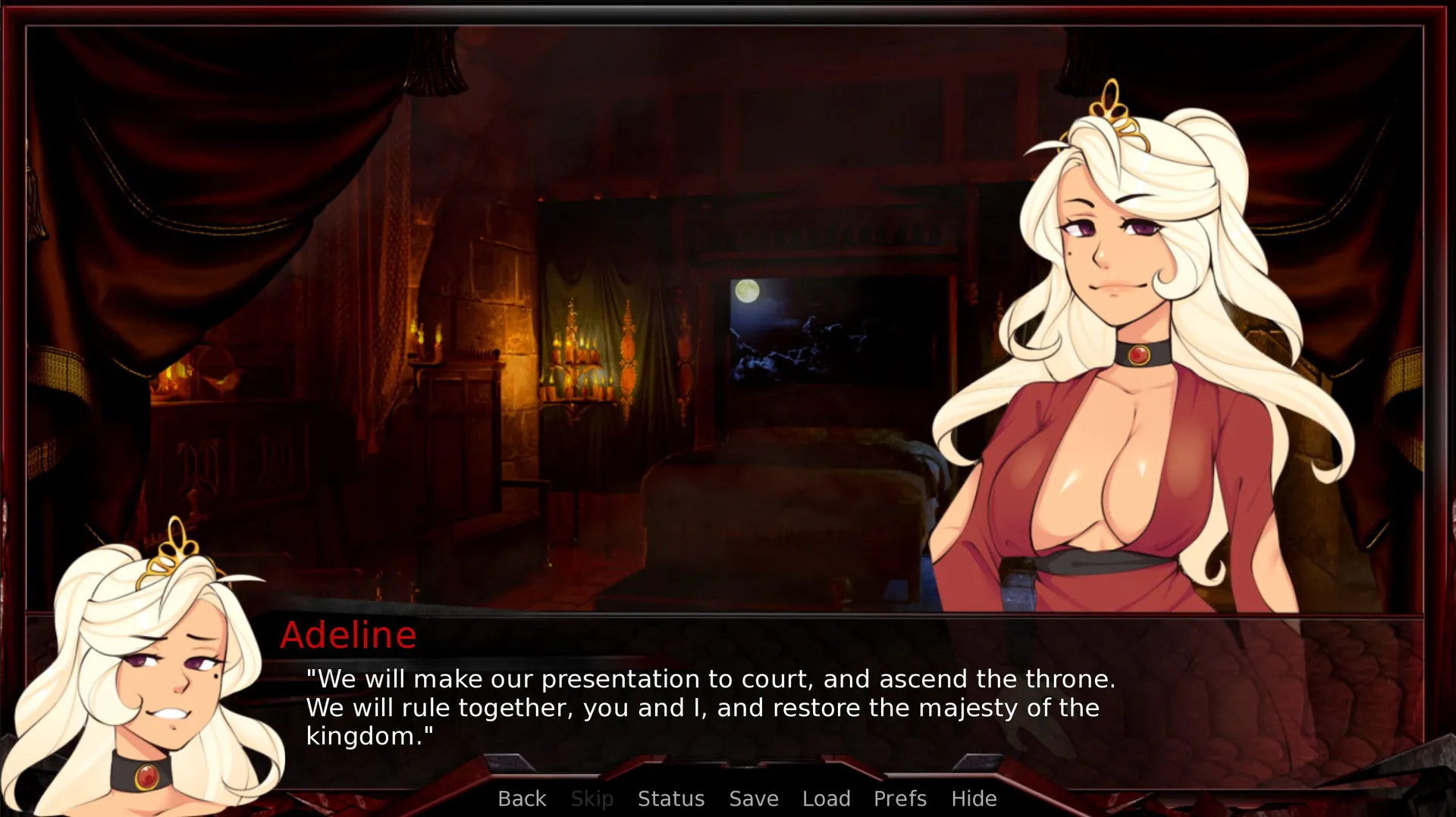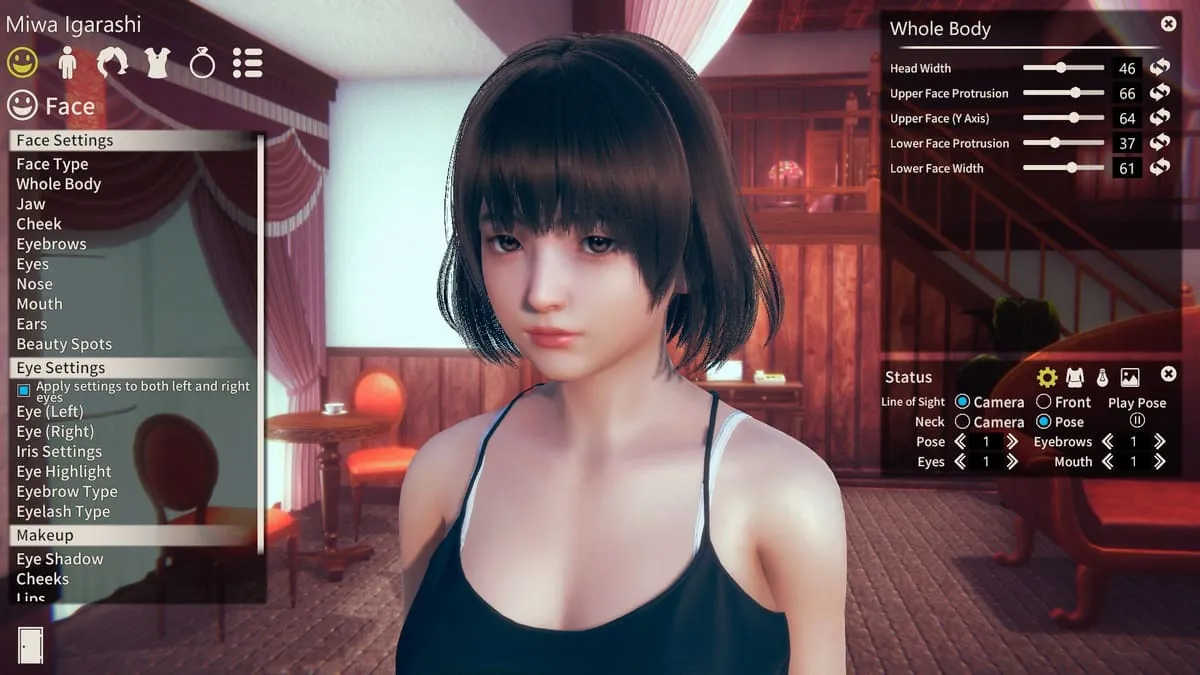
Parental Love
Play Parental Love
Parental Love review
An In-Depth Look at the Gameplay, Story, and Player Engagement
Parental Love is a distinctive interactive game that has captured the attention of a niche audience with its unique narrative and gameplay mechanics. This article dives into what makes Parental Love stand out, exploring its storyline, character development, and player engagement. Whether you’re curious about the game’s structure or want to understand its appeal, this overview provides a comprehensive look at the elements that define Parental Love.
Understanding Parental Love: Gameplay and Storyline
If you’ve ever felt that most interactive story games are all style and no substance, you’re not alone. 😮💨 I’ve clicked through countless visual novels where my choices felt meaningless, my presence irrelevant. Then I found Parental Love, and it completely redefined my expectations. This isn’t just another title in the genre; it’s a masterclass in weaving player agency into a powerful, emotionally charged narrative. 🤯
What makes it so special? It’s the seamless fusion of a gut-wrenching Parental Love game storyline with intricate Parental Love gameplay mechanics. You don’t just watch the story unfold—you live it, breathe it, and your decisions carve the path it takes. It delivers a truly immersive game experience that sticks with you long after you’ve closed the game. Let’s pull back the curtain and see how it all works. ✨
What Is Parental Love About?
At its heart, Parental Love is a story about second chances, fractured bonds, and the difficult road to reconciliation. 🏡 You step into the shoes of a father who, after a long and unexplained absence, returns to his family. Your wife is rightfully guarded, and your two daughters—now young women—are essentially strangers who view you with a mixture of curiosity and resentment.
The core Parental Love game storyline doesn’t shy away from mature and complex themes. It explores the weight of past mistakes, the struggle to earn trust, and the delicate process of rebuilding a family from the ashes of neglect. This isn’t a fairy tale; it’s a raw and often uncomfortable look at the consequences of our actions. The narrative’s power lies in its authenticity. I remember my first playthrough, desperately trying to be the “perfect dad” and overcorrecting so hard I pushed everyone further away. It felt painfully real. 😥
The game’s setting is a character in itself. Your family home feels lived-in and authentic, and as you interact with objects—old photographs, your daughter’s forgotten hobbies—you piece together the life you missed. This environmental storytelling is a crucial part of the Parental Love game storyline, providing context and emotional depth without a single line of expositional dialogue.
Key Gameplay Mechanics
So, how do you actually play? The Parental Love gameplay mechanics are deceptively simple on the surface but contain incredible depth. This is where the game truly sets itself apart from other narrative-driven games.
You navigate your days through a point-and-click interface, choosing how to spend your time. The core loop involves:
* Managing your daily energy 🎯
* Selecting locations to visit around town 🗺️
* Initiating conversations with your family members 💬
Every action, from getting a job to simply watching TV with your daughters, consumes energy and influences your relationships. The real magic, however, lies in the dialogue system. This is the engine of the Parental Love gameplay mechanics. Conversations are not about picking the “good” or “bad” response; they are about choosing who you want to be in that moment. A comment meant to be protective can be interpreted as controlling. A joke to lighten the mood might fall painfully flat.
The game brilliantly tracks your standing with each character through hidden relationship scores, and your Parental Love player choices directly influence which story branches become available. Locking yourself out of a heart-to-heart with your eldest daughter because you prioritized work one too many times is a brutal lesson in consequence.
| Gameplay Feature | How It Works | Impact on Story |
|---|---|---|
| Time & Energy Management | You have limited actions per day. Will you work, rest, or spend time with family? | Determines your financial stability and which character interactions are available. |
| Dialogue Choices | Select from multiple responses in conversations, each with nuanced tones. | Directly alters character relationships and unlocks or locks future story paths. |
| Stat Tracking | Hidden scores for Love, Trust, and Respect for each family member. | These stats are the gatekeepers for pivotal story scenes and endings. |
| Mini-Games & Jobs | Activities like working out or performing tasks at a job. | Raises stats like Strength or Intelligence, which can unlock unique dialogue options. |
Character Development and Story Progression
This is where all the elements collide to create something magnificent. The character development in Parental Love is some of the most nuanced I’ve ever experienced in a game. Your family members are not static NPCs waiting for your input; they are individuals with their own fears, desires, and trauma. Your younger daughter might be more open to your return, desperate for a father figure, while your eldest is fiercely protective of her mother and deeply skeptical of you. 👨👩👧👧
Your Parental Love player choices are the chisel that sculpts these characters’ arcs. A pivotal moment for me was when my eldest daughter, Caroline, was struggling with a college assignment. I had the choice to:
* A) Offer to help her directly.
* B) Tell her she’s smart enough to figure it out on her own.
* C) Suggest she ask her mother instead.
I chose option B, thinking I was encouraging her independence and confidence. The game, however, interpreted this as aloofness and disinterest. Her relationship score dipped, and later that week, I overheard her telling her mom, “See? He doesn’t actually care.” It was a gut punch. 😫 That single choice reinforced her negative perception of me and closed off a potential bonding path for several in-game days. This is a perfect example of how Parental Love player choices have real, emotional weight.
The story progression is entirely non-linear. There is no single “correct” path. You might successfully reconcile with your wife but forever be a distant figure to your children. You might become a beloved father but fail to repair the romantic relationship with your spouse. Some of the most powerful character development in Parental Love comes from these failures, making subsequent playthroughs feel entirely new as you explore different facets of each personality.
This commitment to authentic consequence is what forges such a powerful immersive game experience. You aren’t guiding a character; you are the character, facing the same uncertain, emotionally charged dilemmas. It’s a brave approach to storytelling that respects the player’s intelligence and emotional investment, cementing Parental Love as a landmark title in the world of interactive story games.
Parental Love offers a unique blend of narrative depth and interactive gameplay that engages players through meaningful choices and evolving characters. Its distinct storyline and immersive mechanics make it a noteworthy experience for those interested in story-driven games. Whether you are a seasoned player or new to this genre, Parental Love provides an intriguing journey worth exploring. Dive in and discover how your decisions shape the unfolding story.











